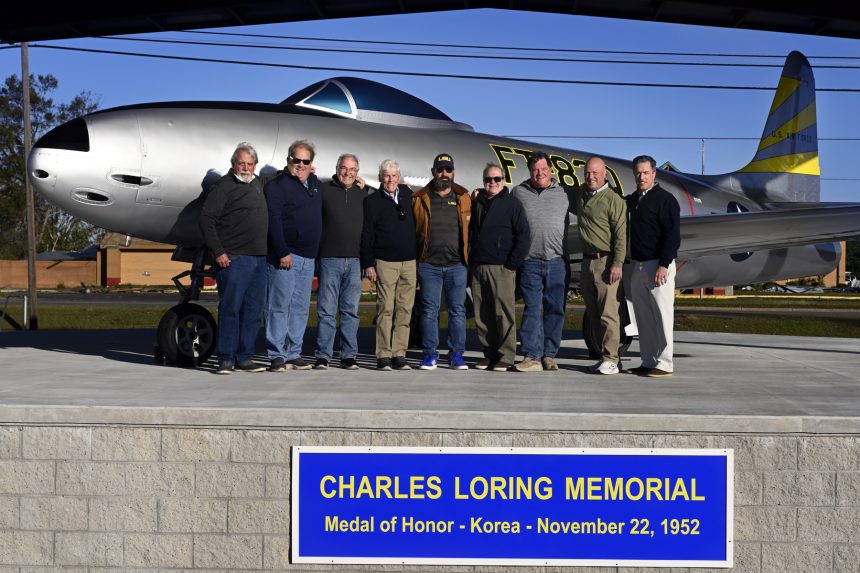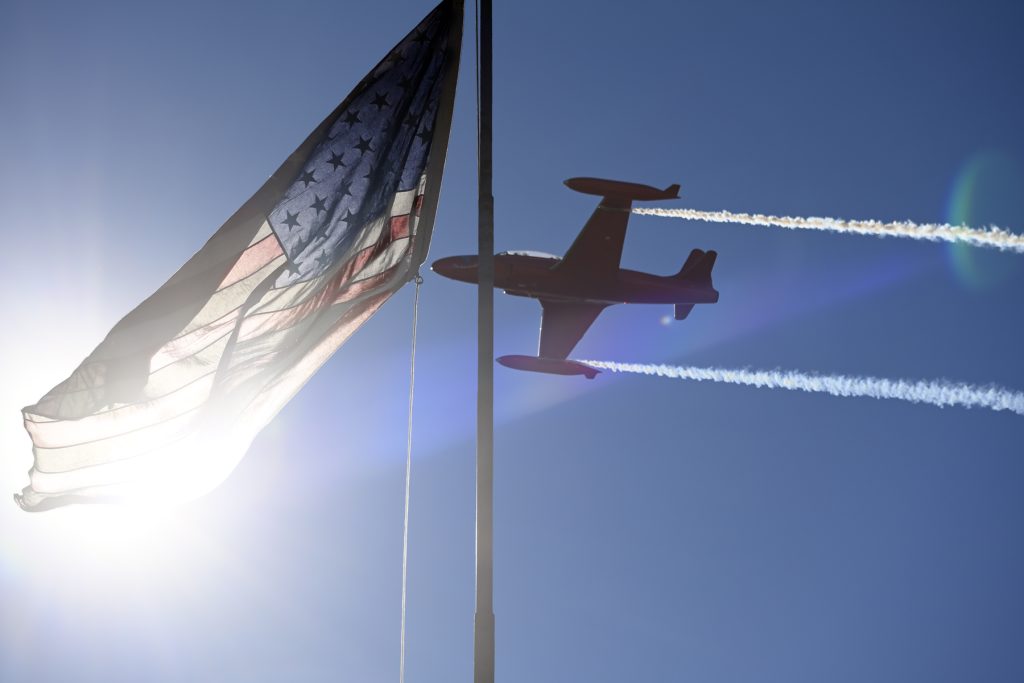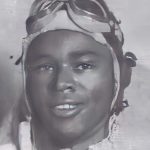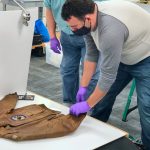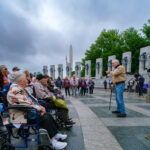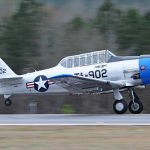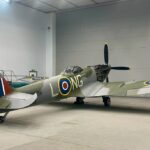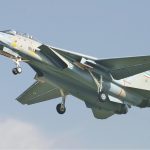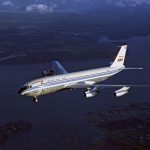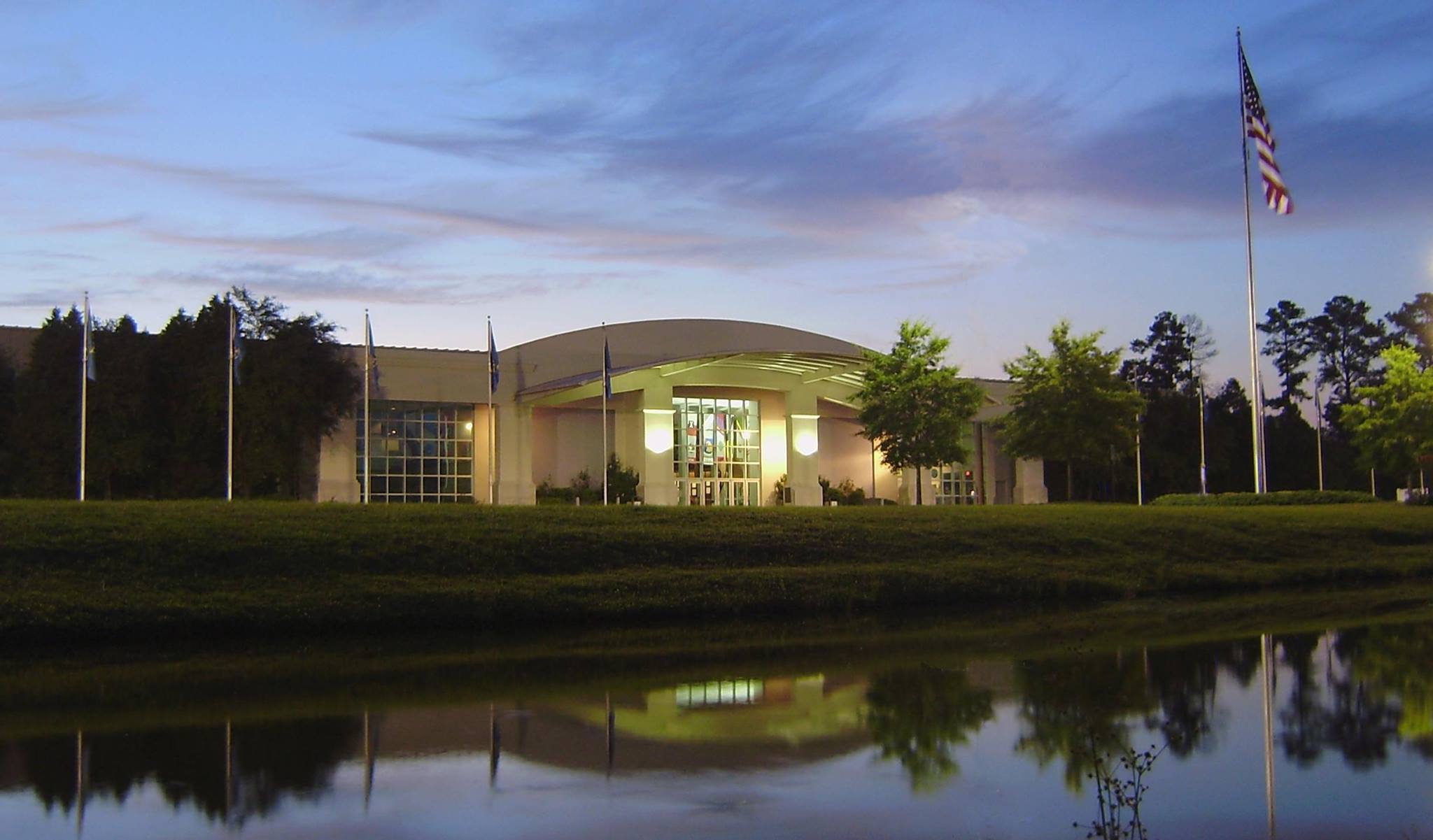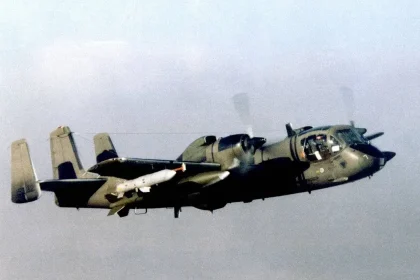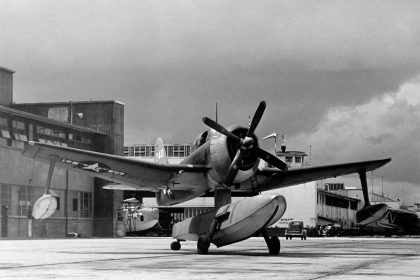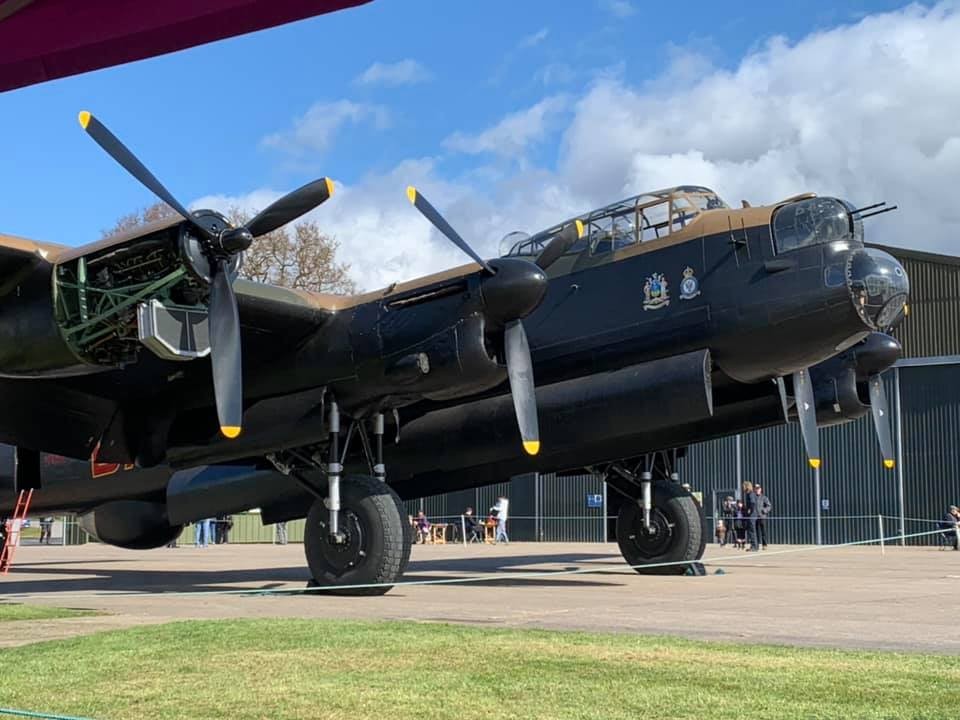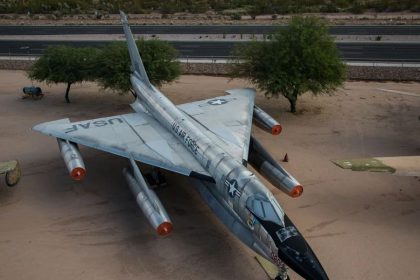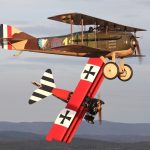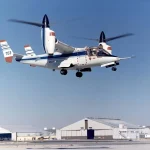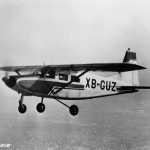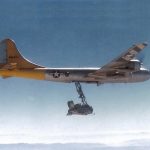By Megan Summers and Marc St. Pierre
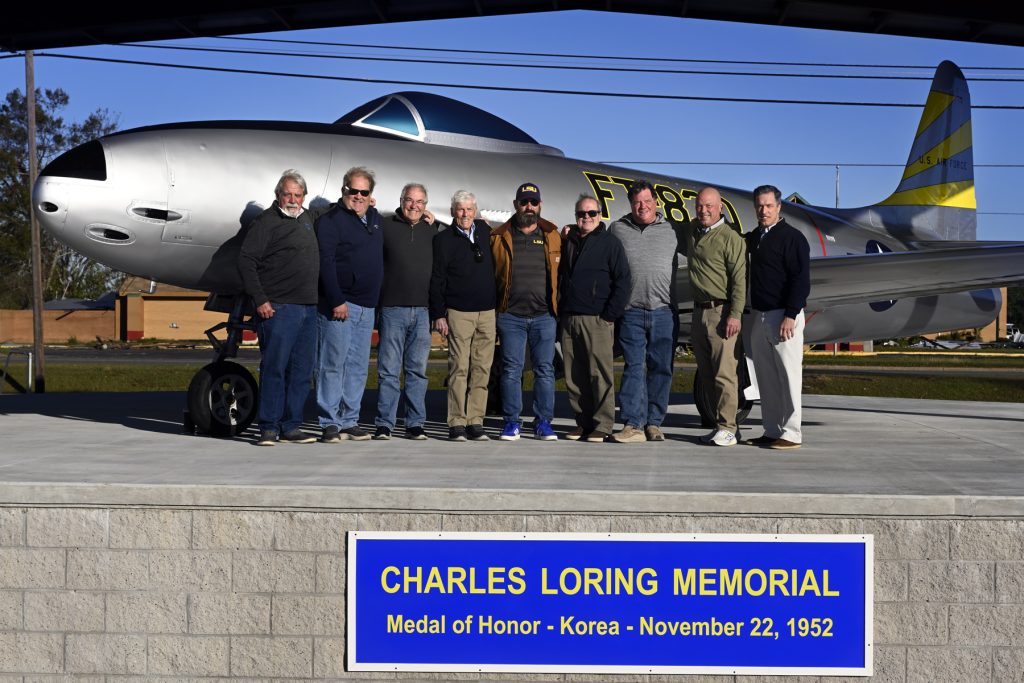
Throughout our nation’s history, Americans have recognized countless men and women who have fought selflessly for our great land. Warriors who have dedicated their lives to the freedoms and well being of our nation, and have maintained a deep integrity to uphold these cherished values. But today, it seems increasingly fewer of us pause to consider what we can learn from such noble people. Importantly, that of which we can take away from their life story to help influence our own. One such hero is Maj. Charles J. Loring, pilot and Medal of Honor recipient with a story bearing lasting lessons.
Deep within southern Georgia, a dedication of a well planned park and reflective memorial was formally presented to the general public on November 22, 2024. Its underlying purpose being to honor, uphold, and teach these same, exact principles previously instilled and woven within American pride. The new, unfolding park and memorial reflects the strong values of common selflessness, never ending personal dedication, and genuine integrity once upheld by an entire nation of a pride filled America.
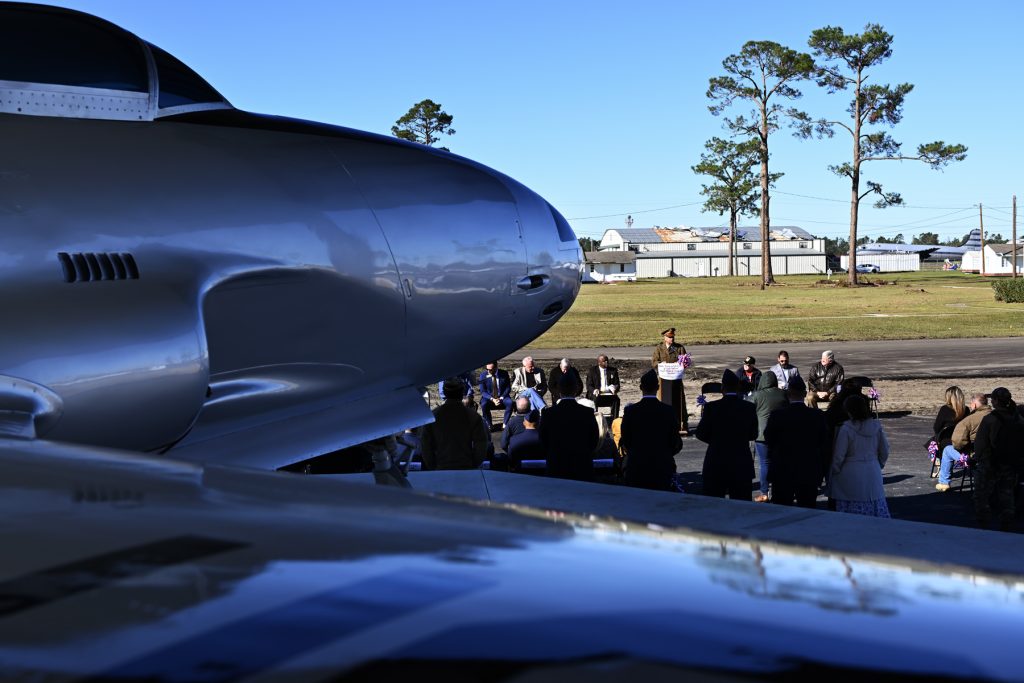
Cadet Park and the Loring Memorial were ribbon cut for the benefit of our nation, at the historically significant Douglas Field, within the charming town of Douglas, Georgia. The park commemorates the cadets of a once highly-active 63rd Army Air Force Contract Pilot School, and was heavily utilized during the height of World War II. Integrated within the park, the memorial showcases a restored Korean War era F-80 aircraft, which helps to visually educate the selfless acts, military dedication, and deep-set integrity of the Maj. Charles J. Loring, Jr.
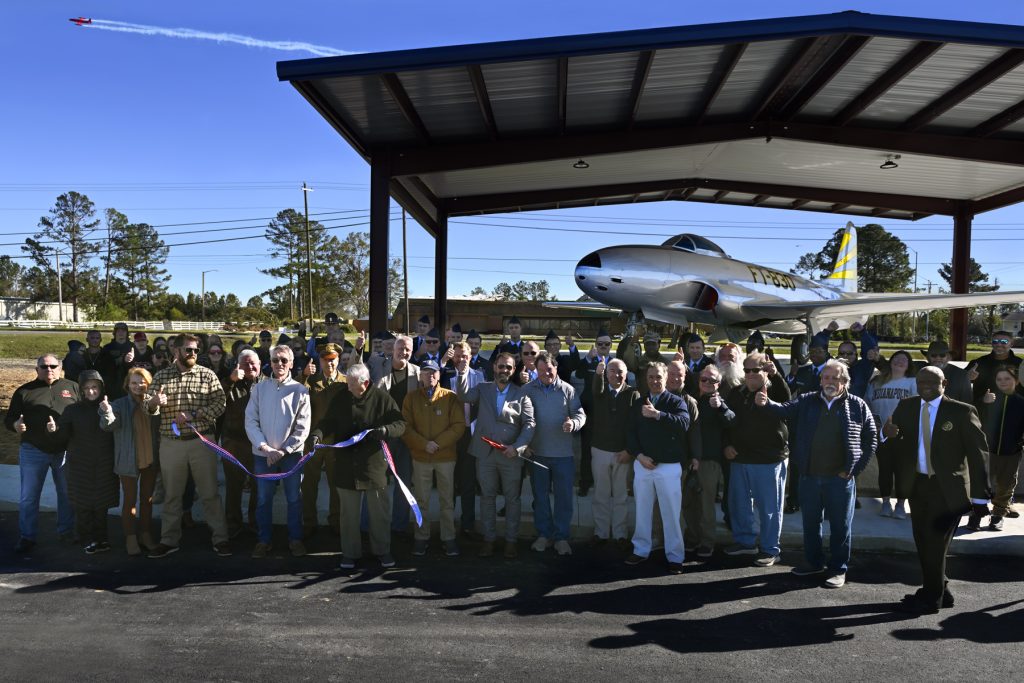
Although more than 9,000 United States Army Air Force (USAAF) cadets were guided through Douglas Field between the years 1941 and 1944, it came to be the then-young Private Charles Loring Jr., from Portland, Maine, would become the most noteworthy; eventually, as national hero. Being one of five brothers, all of whom were directly affiliated with America’s military, Charles was a natural leader, and was quickly appointed as an aviation cadet not long after enlisting in the USAAF in March 1942. After serving a brief stint of anti-submarine patrol over the Caribbean, the newly commissioned 2nd Lt. Loring, and his 36th Fighter Group (FG), were transferred to England in March, 1944 for combat duty. Becoming inspired by the Infantry below, and wanting “to perform feats of courage to match their bravery,” Loring’s P-47 was shot down over Belgium on Christmas Eve, 1944. Injured, he was held captive and remained a German POW for six months, until his release three days before V-E Day.
Despite World War II now being over, Loring remained dedicated to serving our country. He had taken on multiple administrative type roles in the newly established U.S. Air Force, where his integrity shined bright. Once war broke out in Korea; as a natural aviator, Loring was eager to be back in the air, and returned to combat duty with both the 36th and 80th Fighter Bomber Squadrons (FBS).
On 22nd November, 1952, Loring demonstrated his underlying selflessness. He was leading a patrol of F-80 Shooting Star aircraft on a dive bomb mission over North Korea, when his plane was hit multiple times by anti-aircraft gun fire from a large, sprawling Chinese forces battery. Loring’s wing-man, Frank Ray, witnessed the heavy damage to Loring’s aircraft, and hastily radioed to Loring to abort his attack and attempt a return toward their home base. However, Loring remained steadfast and intent on completing his mission: the destruction of the anti-aircraft battery. With a deliberate 45 degree angle turn, and ceasing further communication, Loring re-aimed his heavily damaged aircraft and flew it straight into the enemy ground forces, destroying the entire complex, and selflessly giving his life that he may help to save the lives of his fellow aviators; and importantly, those of the American Infantry….the very men whose bravery Loring had always sought to match. Loring’s remains were never recovered, he was therefore formally listed as “Missing in Action, presumed dead.” Posthumously, Charles Loring would be promoted to Major and his Medal of Honor was presented to his wife and two daughters, in 1953.
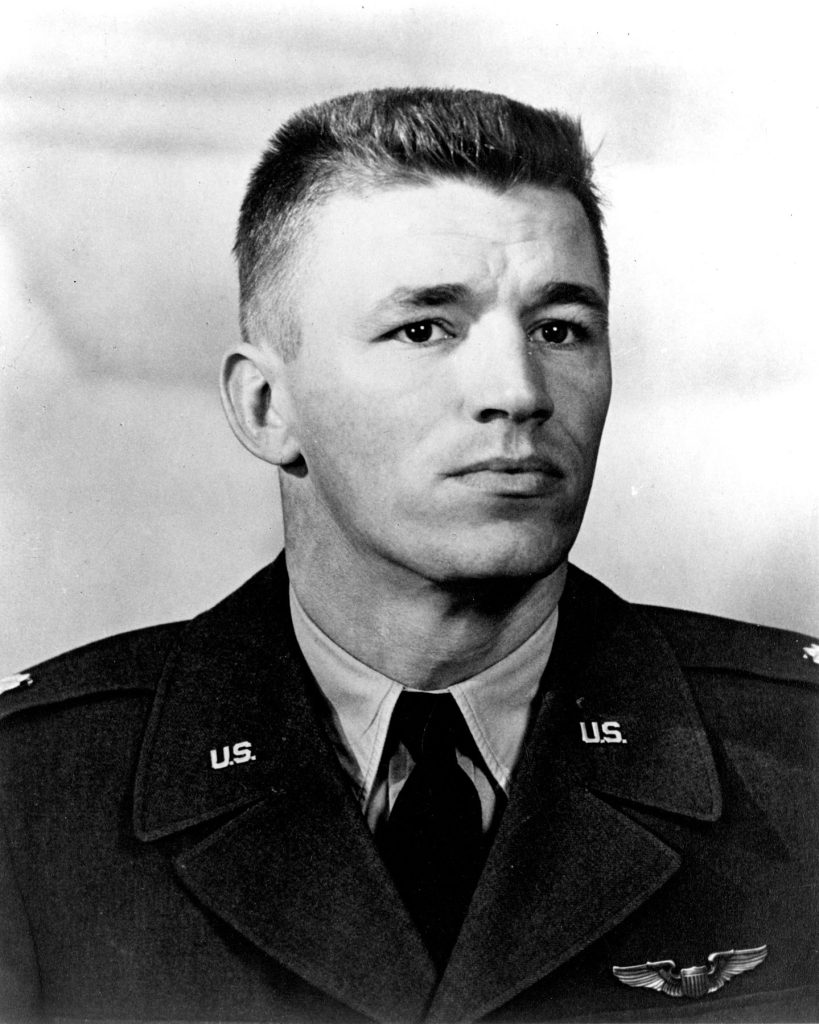
A Lockheed F-80 Shooting Star, now resting on static display at the Loring Memorial, at Douglas Field, in Douglas, Georgia, has been appropriately painted in the same livery to resemble the very plane famously piloted by Charles Loring, Jr. on his fateful and final mission. This aircraft not only now stands as tribute to Maj. Loring, but for current and future generations. It formally stands as a tribute to the many who have similarly previously fallen – selflessly, with personal dedication, and through deep-set integrity – for our great nation and its freedoms.
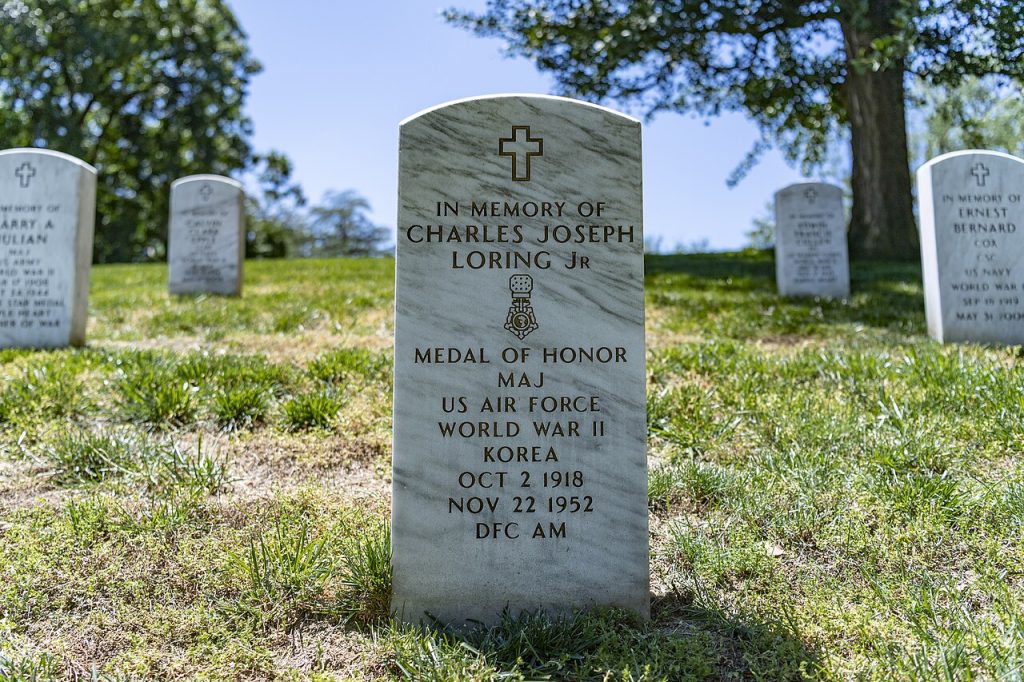
A bible verse often quoted in the military, John 15:13 reads, “Greater love has no one than this, than to lay down one’s life for his friends.” Personal sacrifice is the exact character of the selflessness, dedication, and integrity so blatantly displayed by Charles Loring, Jr., himself, while alive, and his last act remains as xxx. as stated in his Medal of Honor citiation:
“Maj. Loring distinguished himself by conspicuous gallantry and intrepidity at the risk of his life above and beyond the call of duty. While leading a flight of four F-80 type aircraft on a close support mission, Maj. Loring was briefed by a controller to dive-bomb enemy gun positions which were harassing friendly ground troops. After verifying the location of the target, Maj. Loring rolled into his dive bomb run. Throughout the run, extremely accurate ground fire was directed on his aircraft. Disregarding the accuracy and intensity of the ground fire, Maj. Loring aggressively continued to press the attack until his aircraft was hit. At approximately 4,000 feet, he deliberately altered his course and aimed his diving aircraft at active gun emplacements concentrated on a ridge northwest of the briefed target, turned his aircraft 45 degrees to the left, pulled up in a deliberate, controlled manuever, and elected to sacrifice his life by diving his aircraft directly into the midst of the enemy emplacements. His selfless and heroic action completely destroyed the enemy gun emplacement and eliminated a dangerous threat to United Nations ground forces. Maj. Loring’s noble spirit, superlative courage, and conspicuous self-sacrifice in inflicting maximum damage on the enemy exemplified valor of the highest degree, and his actions were in keeping with the finest traditions of the U.S. Air Force.”






